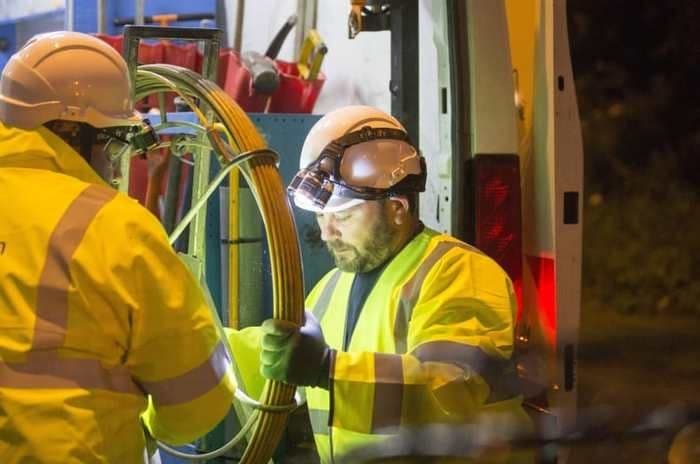Home > Broadband > News > Openreach and ISPs reach agreement on automated compensation
Openreach and ISPs reach agreement on automated compensation
BT, Sky, TalkTalk, Virgin Media and Zen sign up to new agreement that sees broadband and landline customers automatically compensated for loss of service and delays.
Compensation for delayed repairs following loss of service has been set at £8 per day following two full working days without service.
If an engineer fails to attend a scheduled appointment or cancel an appointment with less than 24 hours' notice, customers will be given £25 per appointment.
In addition, the agreement allows for £5 per day compensation when new services miss their contracted start date.
Plusnet and EE are also expected to sign up to the voluntary code, which is based on proposals made by Ofcom in 2017.

Compensation will be automatically applied
A key element of Ofcom's code is that customers must not be forced to actively claim for compensation and that it is instead proactively offered by their provider.
It's also important to note that many service outages last for less than two full working days, so the compensation may be comparatively rare.
In addition, customers may forfeit rights to compensation if they refuse appointments, make a fraudulent claim about loss of service or breach the terms set out in their contract with their ISP.
The agreement comes after a year of wrangling between Openreach and ISPs about the level of compensation and exceptions to the automatic payments.
Openreach has agreed to pay compensation even when third parties prevent it accessing the network, such as a vehicle being parked in front of a cabinet.
However, they will not compensate for events that are 'beyond reasonable control' such as flooding. This is in line with their existing Service Level Guarantee (SLG).
ISPs signed up to Ofcom's code may be forced to pay compensation for these delays themselves, which has been a main source of disagreement between Openreach and ISPs.
Will this lead to price rises?
Critics of the voluntary code argue that it will lead to customers paying more for fixed broadband connections.
Ofcom have previously estimated that up to £142 million could be paid in automatic compensation payments each year.
If ISPs are forced to cover a proportion of those costs, it may have a significant impact on overall service costs, and this may then be passed on to customers.
Further price rises would hit customers at the likes of Virgin Media and Sky who have already seen bills increase in 2018.
While five major ISPs have signed up to the code and another two are expected to, no smaller providers have indicated they wish to do so.
This may suggest that small ISPs are wary of signing up to an agreement that could potentially impact their profit margins and lead to price rises.
Ofcom aim to improve services
The compensation code forms part of a wider Ofcom strategy to improve fixed broadband and landline services in the UK.
Earlier this year, they ruled that providers must give customers notice when their contracts are coming to an end.
This followed the revelation that up to 4 million households were overpaying for home broadband services.
The regulator has also forced significant changes to the way Openreach operates, firstly by forcing its legal separation from BT in 2017.
Openreach's own figures from 2017 highlight a small improvement in fixing faults within the time frames allotted by their contacts with ISPs.
84% of 'level 1' faults were fixed within two working days, while 79% of 'level 2' faults were fixed within one working day.
By 2020/21, Ofcom have stipulated that Openreach must repair 88% of all broadband and landline faults within one to two working days. The average figure for 2017 was 80%.
Get insider tips and the latest offers in our newsletter

We are independent of all of the products and services we compare.

We order our comparison tables by price or feature and never by referral revenue.

We donate at least 5% of our profits to charity, and we have a climate positive workforce.
Latest News

Broadband & TV
Sky offers £100 voucher with Glass TV
Broadband & TV
Virgin Media moves to 24-month contracts
Home Broadband
Government launch IT Reuse for Good charterGet insider tips and the latest offers in our newsletter
